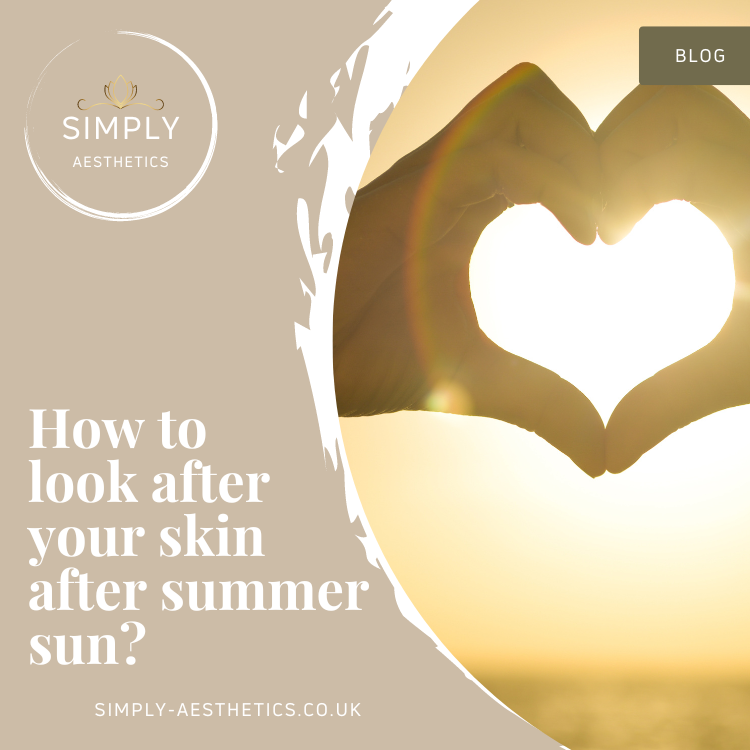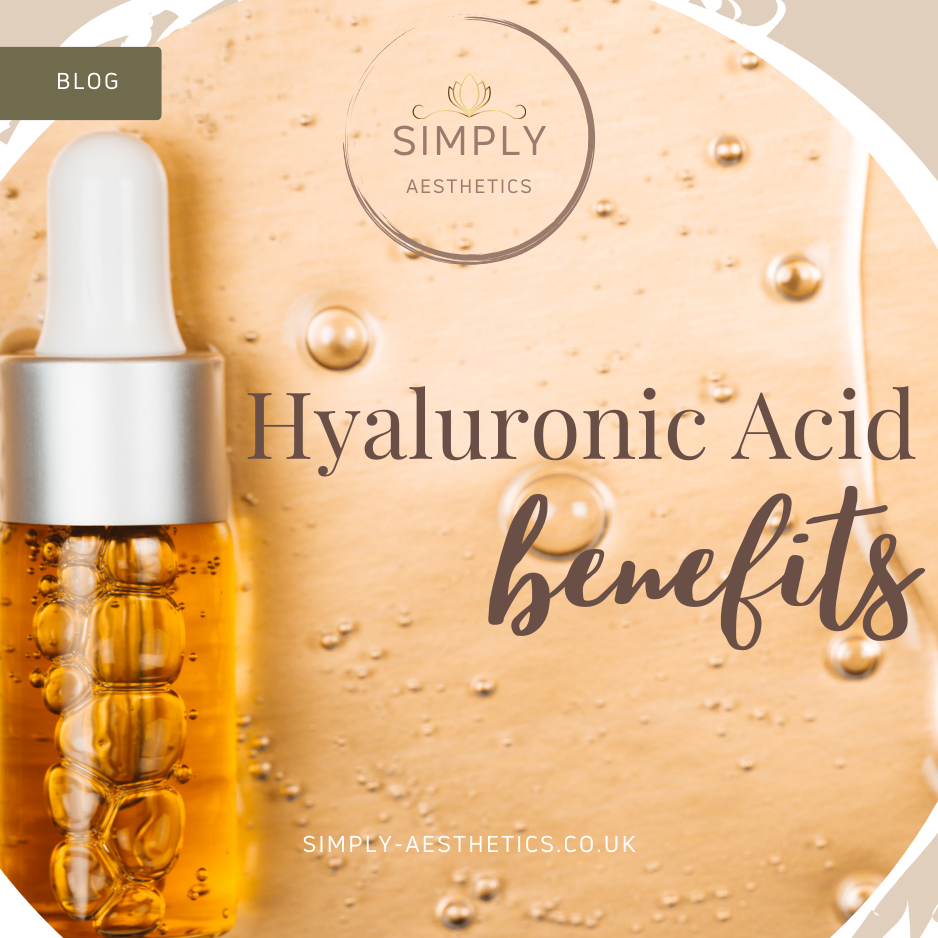
Managing acne can be challenging, but with the right skincare routine and habits, you can help reduce breakouts and improve your skin's overall appearance. Here are some effective acne skincare tips:
1. Cleansing
Use a Gentle Cleanser: Choose a mild, sulfate-free cleanser that won’t strip your skin of its natural oils. Cleanse your face twice a day (morning and night) to remove dirt, excess oil, and makeup.
Avoid Over-Washing: Washing your face too often can irritate the skin and make acne worse. Stick to twice a day, unless you’ve been sweating a lot (e.g., after exercise).
2. Exfoliation
Use a Chemical Exfoliant: Opt for a chemical exfoliant with ingredients like salicylic acid or glycolic acid. These help to unclog pores and promote cell turnover without the harshness of physical scrubs.
Frequency: Start with 1-2 times a week and adjust based on how your skin reacts.
3. Moisturising
Choose Oil-Free Moisturisers: Even if you have oily or acne-prone skin, moisturising is crucial. Look for non-comedogenic, oil-free moisturisers that hydrate without clogging pores.
Lightweight Formulas: Gel-based or water-based moisturisers are often better for acne-prone skin.
4. Spot Treatments
Target Active Pimples: Use spot treatments with benzoyl peroxide, salicylic acid, or sulfur on active breakouts to reduce inflammation and speed up healing.
Apply Sparingly: Only apply to affected areas, as these treatments can dry out the skin.
5. Sun Protection
Use a Non-Comedogenic Sunscreen: Protect your skin from the sun with a broad-spectrum SPF 30 or higher sunscreen that won’t clog your pores.
Avoid Direct Sun Exposure: Sun can worsen acne and cause dark spots or scars.
6. Lifestyle Adjustments
Healthy Diet: Eating a balanced diet with plenty of fruits, vegetables, and whole grains can support overall skin health. Some people find that reducing dairy and high-glycemic foods helps with acne.
Manage Stress: Stress can trigger acne breakouts. Practice stress management techniques such as exercise, meditation, or deep breathing.
Sleep Well: Aim for 7-9 hours of quality sleep per night, as lack of sleep can exacerbate acne.
7. Avoid Touching Your Face
Hands Off: Keep your hands away from your face to prevent the spread of bacteria and dirt that can clog pores.
No Picking or Popping: Popping pimples can lead to scarring and further inflammation. Leave them alone and let treatments do their job.
8. Stay Hydrated
Drink Plenty of Water: Keeping your body hydrated helps maintain your skin's elasticity and can improve the healing process.
9. Consistent Routine
Stick to a Routine: Consistency is key with skincare. It may take several weeks to see noticeable improvement, so be patient and stick with your routine.
10. Consult a Dermatologist
Seek Professional Help: If over-the-counter treatments aren’t working or your acne is severe, consult a dermatologist. They can prescribe stronger treatments like topical retinoids, antibiotics, or even oral medications.
11. Avoid Heavy Makeup
Non-Comedogenic Makeup: If you wear makeup, choose products labeled as non-comedogenic (won’t clog pores). Always remove makeup thoroughly before bed.
By following these tips, you can help manage and reduce acne breakouts while promoting healthier skin. Consistency and patience are crucial, as acne treatments often take time to show results.
Anti Ageing | PCA Skin Essentials

The festive season is full of joy, celebration and cosy winter moments — but it can also be one of the most challenging times of the year for your skin. Cold weather, central heating, late nights, Christmas fizz and a busier social calendar can all contribute to dryness, dullness and irritation. Hydration is one of the simplest yet most powerful ways to keep your skin looking healthy, radiant and resilient throughout December. Here’s why it matters, and how to keep your complexion glowing right through to the New Year. 1. Cold Weather Strips Moisture From the Skin Winter air holds far less moisture than in the warmer months. Combine this with cold winds and low humidity and your skin can lose hydration much more quickly. This can lead to: Dryness Flakiness Increased sensitivity A weakened skin barrier Proper hydration helps reinforce your skin’s natural defences, keeping it more comfortable and less prone to irritation. 2. Central Heating Can Dehydrate the Skin Even More While heating keeps us warm, it also draws moisture out of the skin, contributing to tightness and dullness. This effect is especially noticeable on the face, hands and lips — areas that are more exposed to the elements. Hydrated skin is better able to retain elasticity and stay supple, giving you that healthy, luminous look even on the coldest days. 3. Festive Drinks Can Affect Skin Hydration Alcohol is a natural diuretic, meaning it causes the body to lose fluids. This can leave skin looking tired, puffy and dehydrated the next morning. You don’t need to skip the celebrations — but balancing each drink with a glass of water can make a big difference to how your skin looks and feels. 4. Hydrated Skin Looks Plumper, Smoother & More Radiant Water plays a key role in maintaining the skin’s natural elasticity and structure. When the skin is well-hydrated: Fine lines appear softer Texture looks more even Makeup applies more smoothly The complexion appears brighter and more youthful If you want that effortless festive glow, hydration is essential. 5. Skin Treatments Work Better When the Skin Is Hydrated Healthy, hydrated skin responds far better to aesthetic treatments. Whether it’s injectable skin boosters, Profhilo, microneedling or rejuvenating facials, the results will always be more effective and longer-lasting when the skin is properly hydrated. It also enhances the skin’s ability to heal, making it a valuable part of both pre-treatment and post-treatment care. 6. Hydration Supports a Strong Skin Barrier Your skin barrier protects you from environmental stressors — and winter puts it under extra pressure. When the barrier is compromised, you may experience: Redness Dry patches Increased sensitivity A feeling of tightness or discomfort Hydration helps maintain a strong, resilient barrier so your skin stays balanced throughout the festive season. How to Keep Your Skin Hydrated This December Drink water little and often Aim for steady hydration throughout the day rather than large amounts at once. Use a humidifier at home It adds moisture back into the air, helping skin stay hydrated despite central heating. Choose hydrating skincare Look for ingredients such as: Hyaluronic acid Ceramides Glycerin Squalane These draw water into the skin and lock it in. Consider in-clinic hydration treatments Treatments like Profhilo or skin boosters can significantly improve hydration levels, skin quality and radiance throughout winter. Nourish from within Foods rich in omega-3, antioxidants and healthy fats help support the skin barrier. Keep Your Winter Skin Glowing With the right hydration habits, your skin can stay smooth, bright and comfortable through all the festive fun. Small changes make a big difference — and your complexion will thank you for it when the new year arrives. If you’d like personalised advice on boosting skin hydration or exploring treatments that support winter skin health, contact Simplay Aesthetics today.

Winter is a beautiful season; frosty mornings, cosy evenings, and festive celebrations. But for our skin, it can often feel like the harshest time of year. Cold winds, central heating, and the lack of moisture in the air leave many of us struggling with dryness, dullness, and fine lines that suddenly seem more noticeable. If your skin feels like it’s losing its glow during the colder months, Profhilo could be the treatment you’ve been waiting for. It’s not just another injectable; it’s a unique skin booster that hydrates, remodels, and revives from deep within. Profhilo is an innovative injectable treatment made with one of the highest concentrations of pure hyaluronic acid (HA) available on the market. Hyaluronic acid is a naturally occurring substance in the body that holds water and keeps the skin plump and hydrated. Unlike dermal fillers, which are designed to restore lost volume or add contour, Profhilo spreads beneath the skin like a nourishing net. Once injected, it flows evenly across the skin’s tissue to deliver deep hydration, while also triggering your cells to produce more collagen and elastin — the building blocks of youthful, healthy skin. Profhilo doesn’t change your features. It restores what time and the environment have taken away, giving you back that fresh, radiant, healthy look. During the colder months, our skin is under more stress than usual. The drop in temperature and constant exposure to heating systems can lead to: Dryness and flakiness Dehydration at a deeper level Loss of elasticity Dull, tired-looking skin Profhilo directly addresses these seasonal concerns by working from the inside out: Replenishes deep hydration to combat winter dryness and keep your skin supple. Improves skin texture and glow, helping you feel radiant even on grey days. Remodels skin tissue, gently tightening and reducing the appearance of fine lines and sagging. Prepares your skin for the festive season, so you feel your best at Christmas parties and winter gatherings. My patients love Profhilo because it offers subtle yet powerful results. Some of the main benefits include: Deep, lasting hydration Increased firmness and elasticity Reduction in fine lines and crepey skin Natural, glowing results (no overfilled or “done” look) Minimal downtime — just a few tiny injection points Versatility — it can be used on the face, neck, décolletage, hands, and even areas like the arms and knees Why Choose Simply Aesthetics for Profhilo? With over 24 years of experience in aesthetics and thousands of treatments delivered, you’ll always be in safe hands at Simply Aesthetics. I personally carry out every Profhilo treatment, tailoring the plan to your unique skin needs. I focus on enhancing, not changing , so you’ll leave looking like the best version of yourself — refreshed, radiant, and confident, even in the depths of winter. Book Your Winter Skin Boost https://www.simply-aesthetics.co.uk/clinic-schedule

As of this week, August 2025, the UK government has unveiled a major regulatory overhaul aimed at safeguarding consumers from unsafe, unqualified cosmetic practices - sometimes referred to as cosmetics’ “Wild West.” Here’s what’s changing and how Simply Aesthetics remains your safe, professional choice. What’s Changing High-risk procedures (like non-surgical Brazilian Butt Lifts) will only be performed by qualified healthcare professionals in CQC-registered premises. Lower-risk treatments (Botox, lip and dermal fillers) will require local authority licensing, ensuring strict safety, training, insurance, and hygiene standards. Under-18s protections: Access to high-risk procedures will be restricted unless authorised by a healthcare professional. * These “Plan for Change” measures aim to root out rogue operators (“cosmetic cowboys”), reduce NHS costs from botched procedures, and rebuild public trust.* Why Simply Aesthetics Is Ahead of the Curve Fully qualified practitioner: Jess (Registered Nurse, Independent Prescriber, with extensive advanced injectables training) offers treatments aligned with MHRA, NMC, and BACN standards. Safe, clinical environment: Not a pop-up or salon, our clinics are built for safety, infection control, and professionalism. Ethics and care: We focus on consultation, informed choice, and client well-being, never shortcuts or cheap, unsafe offers. As the industry raises the bar and before regulation becomes law, Simply Aesthetics continues to deliver excellence, trust, and peace of mind . Book your consultation today and experience aesthetic care with integrity and expertise. * GOV.UK The Guardian

We often associate SPF with holidays, beach days, or that one bottle we dig out during a heatwave. But here’s the truth: SPF isn’t just a seasonal extra – it’s a daily essential. Every day, your skin is exposed to UV rays – even when it’s cloudy, rainy, or you’re indoors near windows. These rays are responsible for up to 90% of premature skin ageing, including fine lines, pigmentation, and loss of elasticity. But the damage goes beyond aesthetics – UV exposure is the leading cause of skin cancer. So why should you make SPF a non-negotiable part of your routine? ✅ It protects against premature ageing – UV rays break down collagen and elastin, leading to wrinkles and sagging. ✅ It prevents pigmentation and dark spots – particularly important after aesthetic treatments or if you’re prone to melasma. ✅ It supports your results – If you’ve invested in treatments like microneedling, peels or Morpheus8, daily SPF will help maintain and protect those results. ✅ It lowers your risk of skin cancer – the most important reason of all. Protect your skin today, so it looks better tomorrow.

Hyaluronic Acid (HA) is essential for maintaining the moisture and elasticity of our skin. Unfortunately, as we age, the concentration and molecular weight of HA in our skin significantly decrease, impacting its ability to retain hydration and suppleness. What Is Hyaluronic Acid? Hyaluronic acid is a naturally occurring substance found in the human body, particularly in connective tissues, skin, and eyes. It is a type of glycosaminoglycan—a key component of the extracellular matrix—that supports and hydrates the skin. The Benefits of Hyaluronic Acid Hydration Hyaluronic acid’s primary function is to retain water. It has an incredible ability to hold moisture, making it an excellent hydrating agent. This keeps the skin plump, supple, and well-moisturized. Skin Health HA plays a crucial role in maintaining healthy skin by aiding in the repair and regeneration of skin cells. It supports collagen synthesis, which helps improve skin elasticity and resilience. Anti-Aging Properties As we age, the natural production of HA in our skin decreases, leading to a loss of moisture and elasticity. This contributes to the formation of fine lines and wrinkles. Topical applications or injections of HA can replenish moisture, improve volume, and reduce visible signs of aging. Joint Health HA is present in joint fluid, where it acts as a lubricant and shock absorber. Many people use HA supplements to support joint health, particularly for conditions like osteoarthritis. Wound Healing HA promotes faster wound healing by regulating inflammation, supporting tissue repair, and minimizing scarring. Sunburn Relief When applied topically, HA soothes sunburned skin. Its hydrating properties help reduce redness and promote comfort. Scar Reduction By promoting tissue regeneration and hydration, HA can help reduce the appearance of scars over time. Dermal Fillers In cosmetic dermatology, HA is widely used as a dermal filler to enhance facial contours, smooth wrinkles, and add volume to areas like the lips, cheeks, and nasolabial folds. The benefits of dermal fillers include: Tighter skin tone Smoother texture Less visible fine lines and wrinkles Stimulated skin cell regeneration Improved pigmentation clarity Increased resilience Enhanced lipid barrier Final Thoughts Hyaluronic acid is a powerhouse ingredient with diverse benefits for the skin, joints, and overall tissue health. Whether used in topical skincare, dietary supplements, or cosmetic treatments, HA offers a versatile solution for hydration, repair, and rejuvenation. Embrace the power of HA and experience healthier, more radiant skin!

When it comes to achieving radiant, healthy skin, hydration often takes center stage. It’s a simple yet powerful practice that can work wonders for your complexion. While there are many factors that contribute to skin health, drinking enough water is an often-overlooked yet essential part of your skincare routine. Let’s explore how staying hydrated can enhance your skin’s appearance and overall health. Why Is Hydration Important for Skin? Your skin is your body’s largest organ, and like the rest of your body, it relies on water to function properly. When you’re dehydrated, your skin can appear dry, tight, and flaky. Over time, chronic dehydration may even lead to more pronounced fine lines and wrinkles. Water plays a crucial role in maintaining your skin’s elasticity, moisture levels, and overall suppleness. By staying hydrated, you’re giving your skin the foundation it needs to stay resilient and glowing. Benefits of Drinking Water for Your Skin Improved Elasticity Proper hydration helps maintain your skin’s elasticity, reducing the appearance of fine lines and wrinkles. Well-hydrated skin is more plump and youthful. Enhanced Complexion Drinking water can help flush out toxins from your system, resulting in a clearer and more even complexion. It supports your body’s natural detoxification processes, which can reflect on your skin. Reduction in Puffiness Dehydration can cause your skin to retain water, leading to puffiness. Staying hydrated balances this out, reducing swelling and puffiness, especially around the eyes. Boosted Skin Healing Water supports cell regeneration and repair. If you have dry or damaged skin, proper hydration can aid in the healing process. A Natural Glow Hydrated skin often has a natural, healthy glow. Water helps maintain optimal blood circulation, which contributes to a vibrant appearance. How Much Water Should You Drink? While the commonly recommended 8 glasses a day is a good starting point, hydration needs vary based on factors like age, activity level, and climate. Pay attention to your body’s signals, such as thirst and the color of your urine, to gauge whether you’re drinking enough water. Tips to Stay Hydrated Keep Water Handy: Carry a reusable water bottle wherever you go. Set Reminders: Use alarms or apps to remind you to drink water throughout the day. Flavour It Up: If plain water feels boring, add a splash of lemon, cucumber slices, or a handful of berries. Eat Water-Rich Foods: Foods like cucumbers, watermelon, and oranges can also contribute to your daily hydration. Beyond Water: Complementary Skincare While drinking water is essential, pairing it with a solid skincare routine amplifies its benefits. Use hydrating serums or moisturizers containing ingredients like hyaluronic acid to lock in moisture and keep your skin looking its best. Final Thoughts Staying hydrated is a simple yet powerful way to enhance your skin’s health and appearance. By making water a priority in your daily routine, you’ll not only feel better but also see noticeable improvements in your skin. Ready to glow? Start sipping and enjoy the benefits of hydrated, radiant skin! For more skincare tips, check out more of my blogs and keep your journey to flawless skin on track.

When receiving injectable treatments such as Botox, dermal fillers, or other cosmetic injectables, it's crucial that the practitioner has adequate training and qualifications to ensure safety and effectiveness. The amount of training a practitioner should have can vary depending on local regulations and the type of injectables being administered, but there are key standards that should ALWAYS be met. General Requirements: Licensed Medical Professional: The person administering injectables should be a licensed medical professional. This typically includes: Doctors (MDs) Dentists (DDS, DMD) Nurses (Registered Nurses, Nurse Practitioners, or Physician Assistants) Some countries or states allow other healthcare providers, such as pharmacists, to administer injectables, but this varies. Training in Aesthetic Procedures: Beyond their basic medical training, practitioners must undergo specific training in administering injectables. These training programs teach the anatomy of the face, the proper technique for injecting, and how to avoid complications. Botox/Dermal Filler Training: This is typically a two-part process: Theoretical Training: Learning facial anatomy, pharmacology, potential side effects, and safety protocols. Hands-On Training: Practicing under supervision to gain experience with actual injections. Certification Courses: Reputable aesthetic injectors usually attend certification programs that range from 1 to several days, but the best ones offer more comprehensive, in-depth training. It's important to note that a 1- or 2-day course may provide basic skills, but ongoing education and experience are key. Ongoing Education: A practitioner who regularly attends conferences, workshops, or advanced certification courses is more likely to be up to date with the latest techniques and safety practices. Potential Concerns with Short Training: Lack of Experience: While someone may be technically qualified after a short course, this doesn't necessarily mean they have enough hands-on experience to ensure safe and optimal outcomes. Complication Management: Practitioners with more experience and education are better equipped to manage complications like allergic reactions, infections, or misplaced injections and in some cases death. What to Look For: Medical Background: Verify that the practitioner is a licensed healthcare professional. Certification: Ask about their certification and whether they’ve had advanced training in aesthetic injectables. Experience: Enquire how long they’ve been performing injections and how often they do them. Safety Standards: Ensure that they adhere to strict hygiene and safety protocols and have protocols in place to manage any adverse reactions. While a practitioner can be legally qualified after a 1- or 2-day course, it's safer to choose someone who has invested in comprehensive training and has significant experience.

After a summer of sun exposure, your skin may need some extra care to recover and maintain its health. Here are some steps to help you look after your skin: 1. Hydrate Inside and Out Drink Plenty of Water: Staying hydrated helps maintain skin elasticity and prevent dryness. Moisturise: Use a rich, hydrating moisturiser to replenish the moisture lost due to sun exposure. Consider products with ingredients like hyaluronic acid, glycerin, or ceramides. 2. Soothe Sun-Damaged Skin Aloe Vera: Apply aloe vera gel to calm sunburned skin. It's soothing and helps with healing. Cooling Treatments: Use cooling masks or compresses to reduce redness and inflammation. 3. Exfoliate Gently Remove Dead Skin Cells: Exfoliate your skin 1-2 times a week to remove dead skin cells and promote cell turnover. Choose a gentle scrub or a chemical exfoliant with AHA or BHA. Avoid Harsh Scrubs: Steer clear of rough exfoliants that can irritate already sensitive skin. 4. Repair and Protect Antioxidants: Incorporate products with antioxidants like vitamin C or E to help repair skin damage and brighten your complexion. Retinol: Consider using a retinol serum at night to promote skin renewal, but start slowly as it can be irritating. Sun Protection: Continue using sunscreen daily, even after summer. A broad-spectrum SPF 30 or higher is essential to protect your skin from further damage. 5. Address Hyperpigmentation Brightening Serums: Use serums with ingredients like niacinamide, vitamin C, or licorice extract to fade dark spots and even out skin tone. Consult a Dermatologist: For persistent hyperpigmentation, a dermatologist may recommend stronger treatments like chemical peels or laser therapy. 6. Nourish from Within Eat a Balanced Diet: Include foods rich in vitamins C, E, and omega-3 fatty acids. These nutrients support skin repair and hydration. Supplements: Consider supplements like collagen or omega-3s to boost skin health. 7. Revitalise Tired Skin Facial Treatments: Pamper your skin with hydrating and rejuvenating facial treatments, like a hydrating mask or a professional facial. Sleep Well: Ensure you get enough sleep to allow your skin to repair itself overnight. 8. Stay Consistent Maintain a Skincare Routine: Stick to a consistent skincare routine that includes cleansing, moisturising, and protecting your skin daily. 9. Consider Professional Help Dermatologist Consultation: If you have concerns about sun damage, pigmentation, or any other skin issues, it might be wise to consult a dermatologist for personalised advice. By following these steps, you can help your skin recover from the effects of the summer sun and maintain a healthy, glowing complexion year-round. I also have a skincare range, to visit please click here

Hyaluronic Acid (HA) is crucial to the moisture and elasticity of our skin. Unfortunately, as we age, the concentration and molecular weight of HA substantially decreases. Hydration = Hyaluronic Acid Hyaluronic acid is a naturally occurring substance found in the human body, particularly in connective tissues, skin, and eyes. It is a type of glycosaminoglycan, which is a key component of the extracellular matrix that supports and hydrates the skin. Here are some benefits of hyaluronic acid: Hydration: One of the main functions of hyaluronic acid is to retain water. It has an incredible ability to hold moisture, making it an excellent hydrating agent. This helps keep the skin plump, supple, and well-hydrated. Skin Health: Hyaluronic acid plays a crucial role in maintaining the health of the skin. It contributes to the repair and regeneration of skin cells, aiding in the healing process. It is also involved in collagen synthesis, promoting skin elasticity. Anti-Aging Properties: As we age, the natural production of hyaluronic acid in the skin decreases. This can lead to a loss of moisture and elasticity, contributing to the formation of fine lines and wrinkles. Topical application or injections of hyaluronic acid can help reduce the visible signs of ageing by adding moisture and volume to the skin. Joint Health: Hyaluronic acid is present in joint fluid, where it acts as a lubricant and shock absorber. Some people use hyaluronic acid supplements to support joint health, especially in conditions like osteoarthritis. Wound Healing: Hyaluronic acid has been shown to promote faster wound healing. It can help regulate inflammation, support tissue repair, and minimise scarring. Sunburn Relief: When applied topically, hyaluronic acid can provide relief for sunburned skin. Its hydrating properties help soothe the skin and reduce redness. Scar Reduction: Hyaluronic acid may aid in reducing the appearance of scars by promoting tissue regeneration and hydration. Dermal Fillers: In cosmetic dermatology, hyaluronic acid is commonly used as a dermal filler to add volume to areas of the face, such as lips, cheeks, and nasolabial folds, helping to smooth wrinkles and enhance facial contours. The benefits with dermal fillers = TIGHTER SKIN TONE SMOOTHER TEXTURE LESS VISIBLE FINE LINES AND WRINKLES STIMULATES SKIN CELL REGENERATION PIGMENTATION CLARITY INCREASED RESILIENCE LIPID BARRIER ENHANCEMENT





